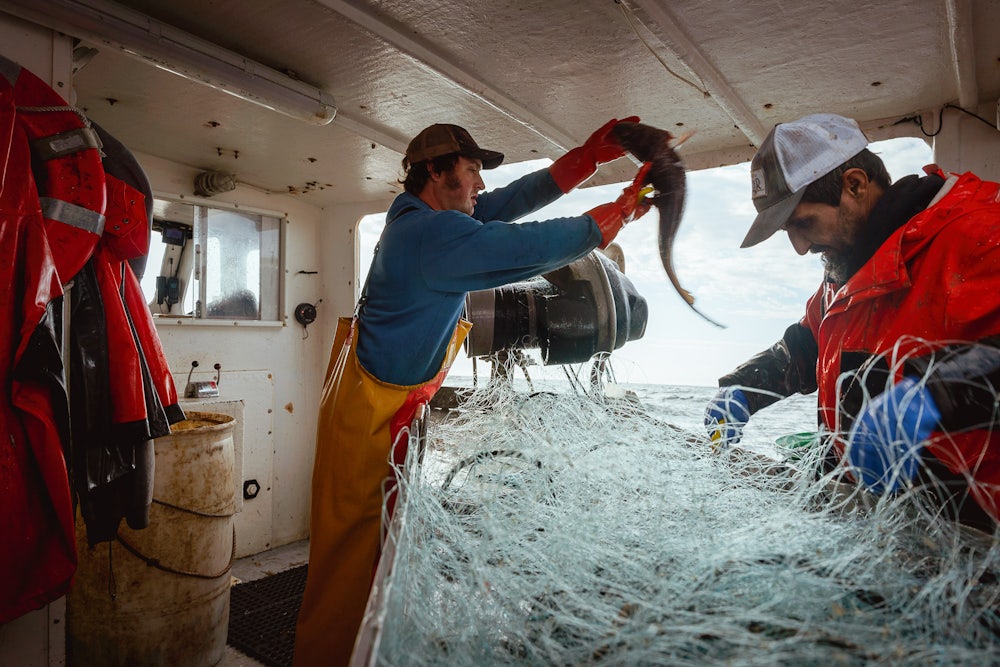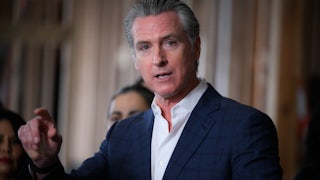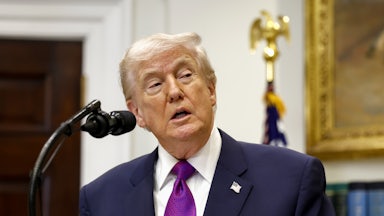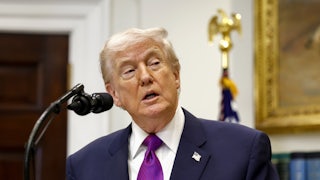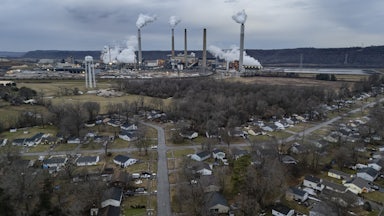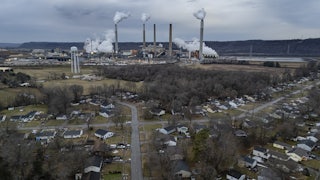In 2024, even in blue areas like coastal Massachusetts, fishing boats were festooned with Trump flags. Conspiracies about the elite agenda of the environmental movement run rampant in fishing communities, and fishermen don’t tend to feel that government is on their side. They hoped Trump would make their lives better by easing regulations. Instead, he’s brought chaos and uncertainty to an already challenged industry. It’s one of many examples of how thin Trump’s commitment is to America’s hardest-working people, even in industries that have fervently supported him.
Reflecting on life before Trump, Sarah Schumann, a commercial fisherman who works in Rhode Island and Alaska, told me she had been frustrated with “regulations layered upon regulations. There’s been this mounting level of complexity and minutiae, things you have to comply with, paperwork, that have made it quite complex to go fishing, especially in federal waters.” She also grumbled about the process for approving offshore wind farms, which she said seemed to privilege corporations over working people.
Her perspective is measured compared to many in the industry. In Gloucester, Massachusetts, historically a major fishing city, the daily paper for years has at times portrayed regulations on fishing—and even concerns about overfishing—as an elite plot, condemning the “autocratic” methods of environmental groups.
Schumann heads the Fishery Friendly Climate Action Campaign, whose slogan is “Climate Action Led by People in Boots, Not People in Suits.” During Democratic administrations, she says, many in the industry feel “the powers that be tend to listen to the professional managerial class and downgrade the lived experiences of the working class”; consultants and staff at nongovernmental organizations tend to have an outsize voice. When Trump was elected, Schumann hoped there would be more of an opportunity for working-class voices to be heard.
“I couldn’t have been more wrong,” she said, laughing ruefully. Not even six weeks into Trump’s presidency, the Marine Fisheries Advisory Committee she had been serving on for the past three years was canceled. “So I lost my voice,” she said.
Many fishermen, including Schumann, were pleased that Trump paused a number of offshore wind projects for review. But that doesn’t mean that fishermen have any say. Under Biden, Schumann was regularly participating in public comments, but under Trump there is “no transparency. A lot less engagement. We’re not being asked what we think.” For “a lowly deckhand” like her to have a voice, she said, “I would have to hire a consultant”—which is pretty ironic given the administration’s crusade against the professional class.
Some fisherman also cheered Trump’s executive order last month on deregulating the fishing industry, though not everyone did. Many in New England fear that without smart oversight, key fishing stock could be imperiled, just as cod and shrimp were decimated by overfishing in the past.
Worse, however, is how this administration’s policies—especially budget cuts—are wreaking havoc in the fishing industry. It’s an example of how, even for people who have long felt burdened by government interference, Trump is in some ways making things worse for them.
Trump and Elon Musk’s Department of Government Efficiency are moving to gut the National Oceanic and Atmospheric Administration, which not only provides weather forecasts and severe storm warnings but also does climate monitoring, fisheries management, and coastal restoration. Thousands have lost their jobs at an agency that only employs around 13,000 people. Trump’s proposed budget calls for cutting NOAA by 25 percent.
A significant casualty is NOAA Fisheries, which provides the data to regulate and support the industry. The DOGE cuts have led to a lack of clear information, with fishing schedules chaotically redrawn. Scallopers in New England’s $360 million industry had to shut down for a few weeks this spring because the short-staffed NOAA couldn’t sign off on this season’s rules in time. Permits are taking longer.
The NOAA’s National Weather Service—which provides the weather data on which the whole country relies—has also been ravaged by DOGE. Fishing is already one of the deadliest industries in the world; not having reliable information about coming storms will only make it more so.
One of the problems that existed before Trump’s reelection, according to Schumann, is that government data on fish populations is often out of date. So, for example, fishermen might be given limits on a species that was in trouble three years ago and has now bounced back. Massive layoffs among the scientists at NOAA Fisheries who collect the data will likely “magnify that problem,” she said.
Meanwhile, the lifting of some catch quotas, a regulation freeze back in January, and reduced data collection are already leading to overfishing, especially of Atlantic bluefin tuna off the coast of North Carolina. Some species that are crucial to the industry and have been declining, like winter flounder, won’t be studied this year.
Before Trump, many fishermen were in the process of decarbonizing their fleets with the help of federal funding. But Trump and Musk’s cuts disrupted those subsidies. Some who began the process of decarbonizing their boats, only to lose the promised money in a DOGE slashing spree, are now on the hook for enormous expenses and can’t go through with these plans. In some cases, Schumann says, the funding can be recovered from DOGE, but “it’s too late” for those particular fleets; the season has already started, and fishermen can’t take the time to get their boats out of the water and retrofit them.
Fishermen like Schumann are still organizing to create workable systems that reduce carbon. Some of that change can be coordinated on a regional level. But this work will be difficult if not impossible without the help of NOAA Fisheries and its scientists. “These are our scientists,” Schumann says, meaning that they serve the public. “And they’re gone.”
